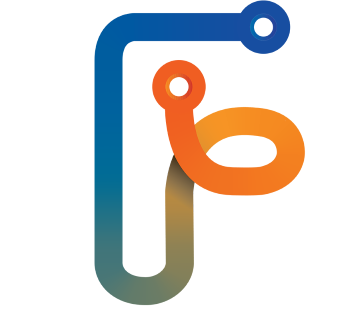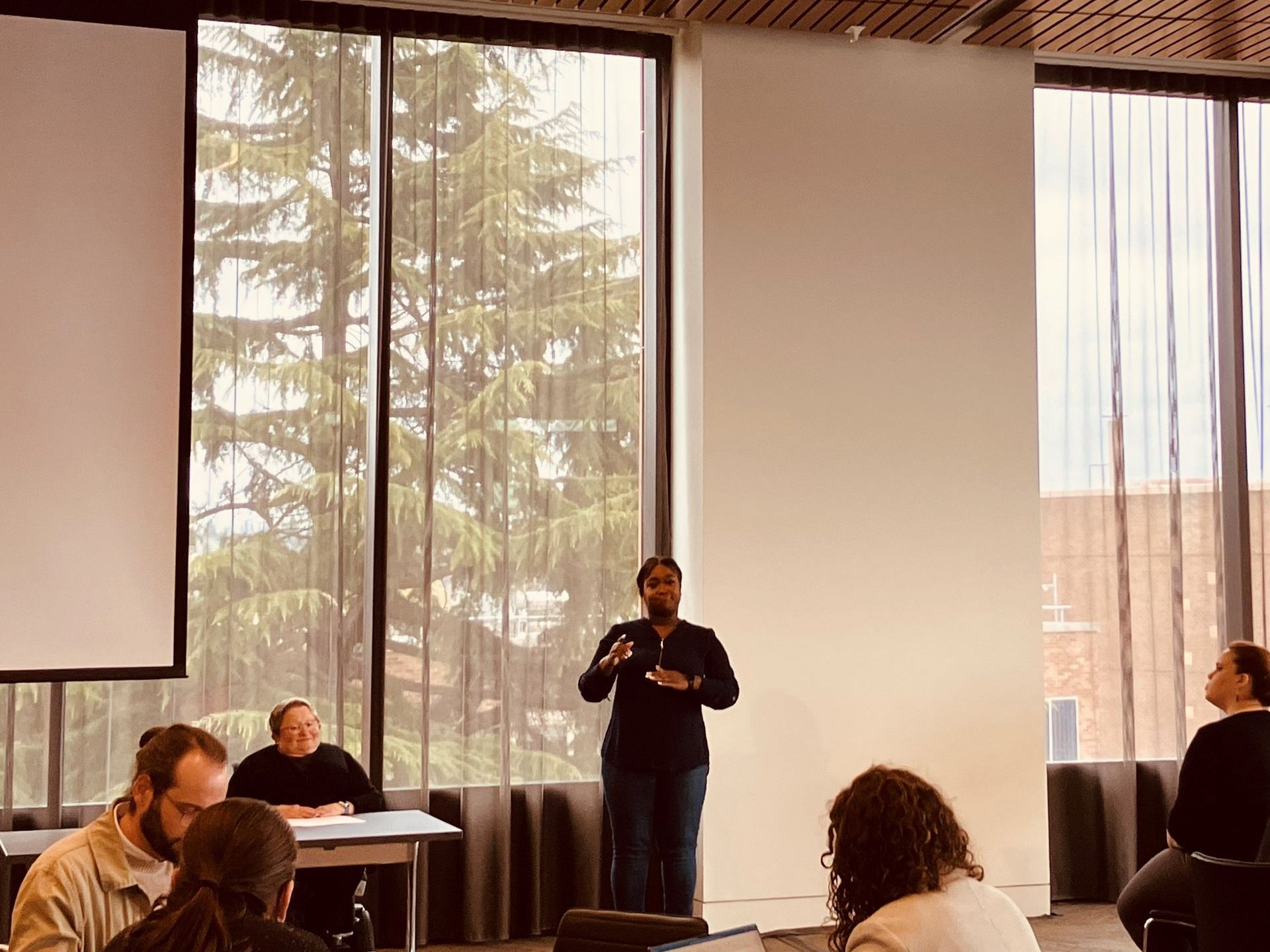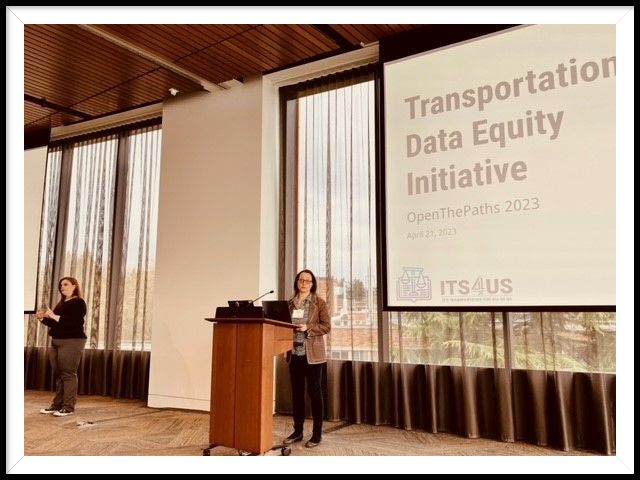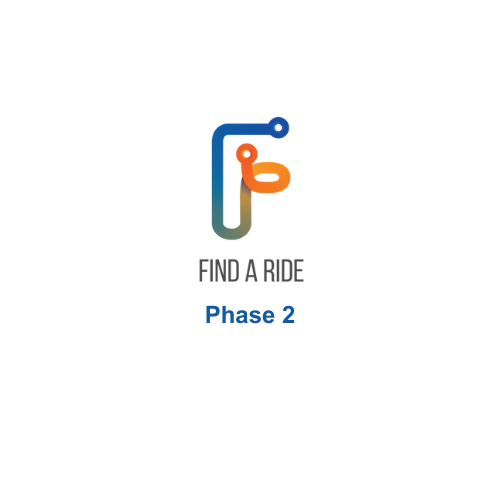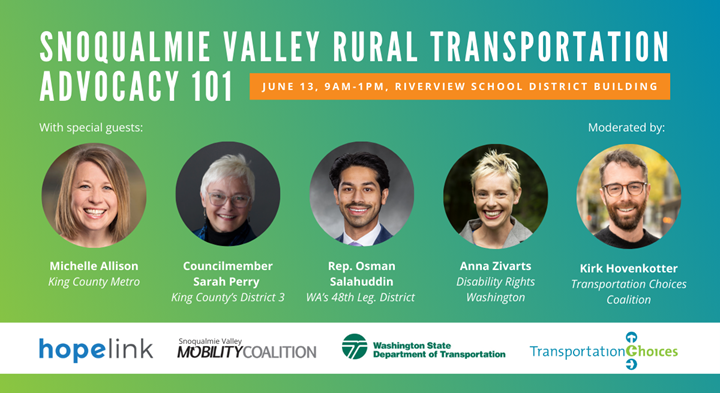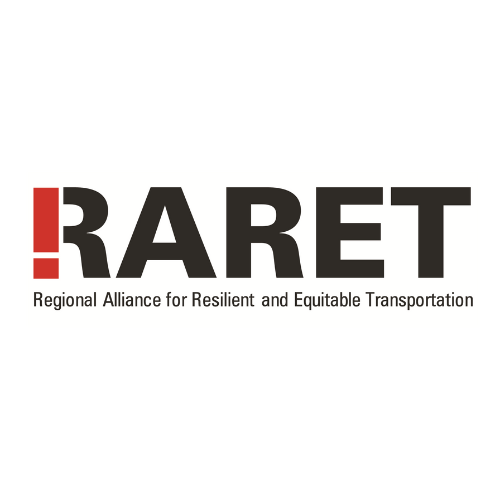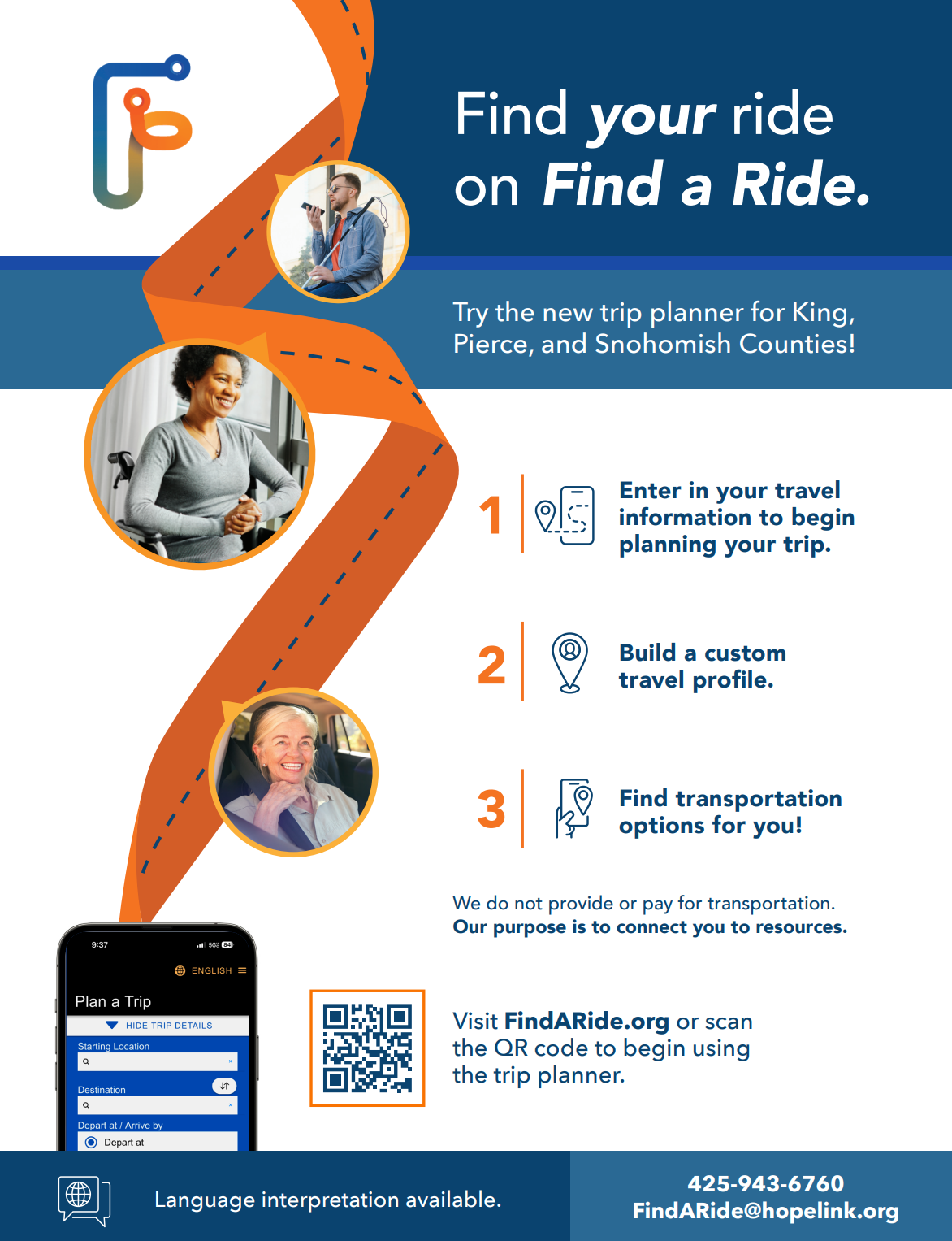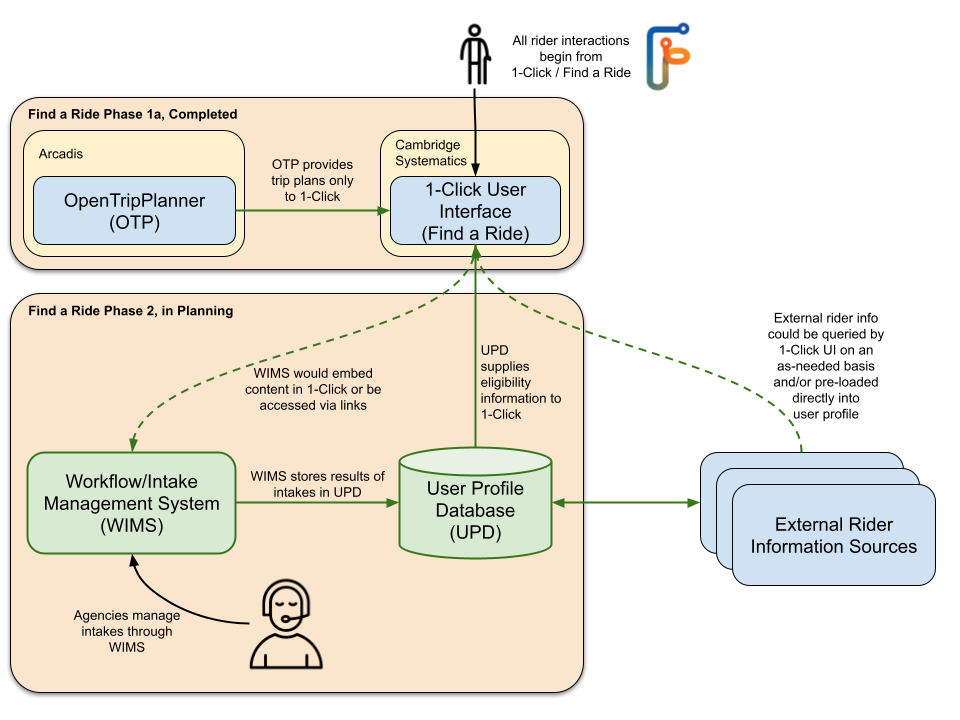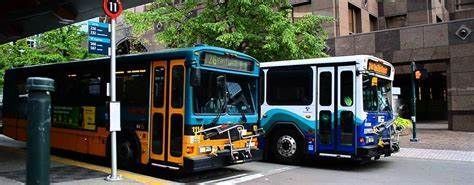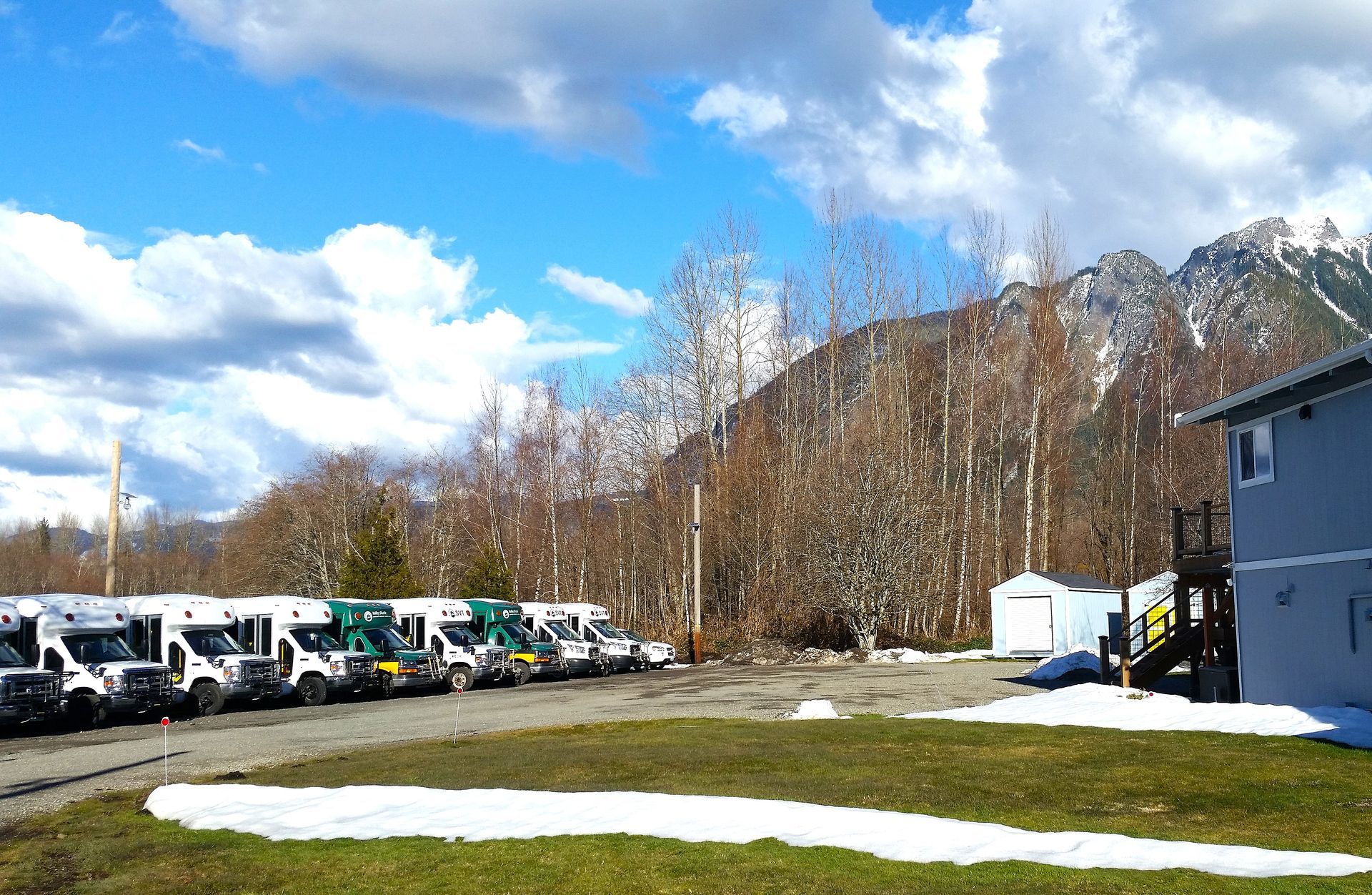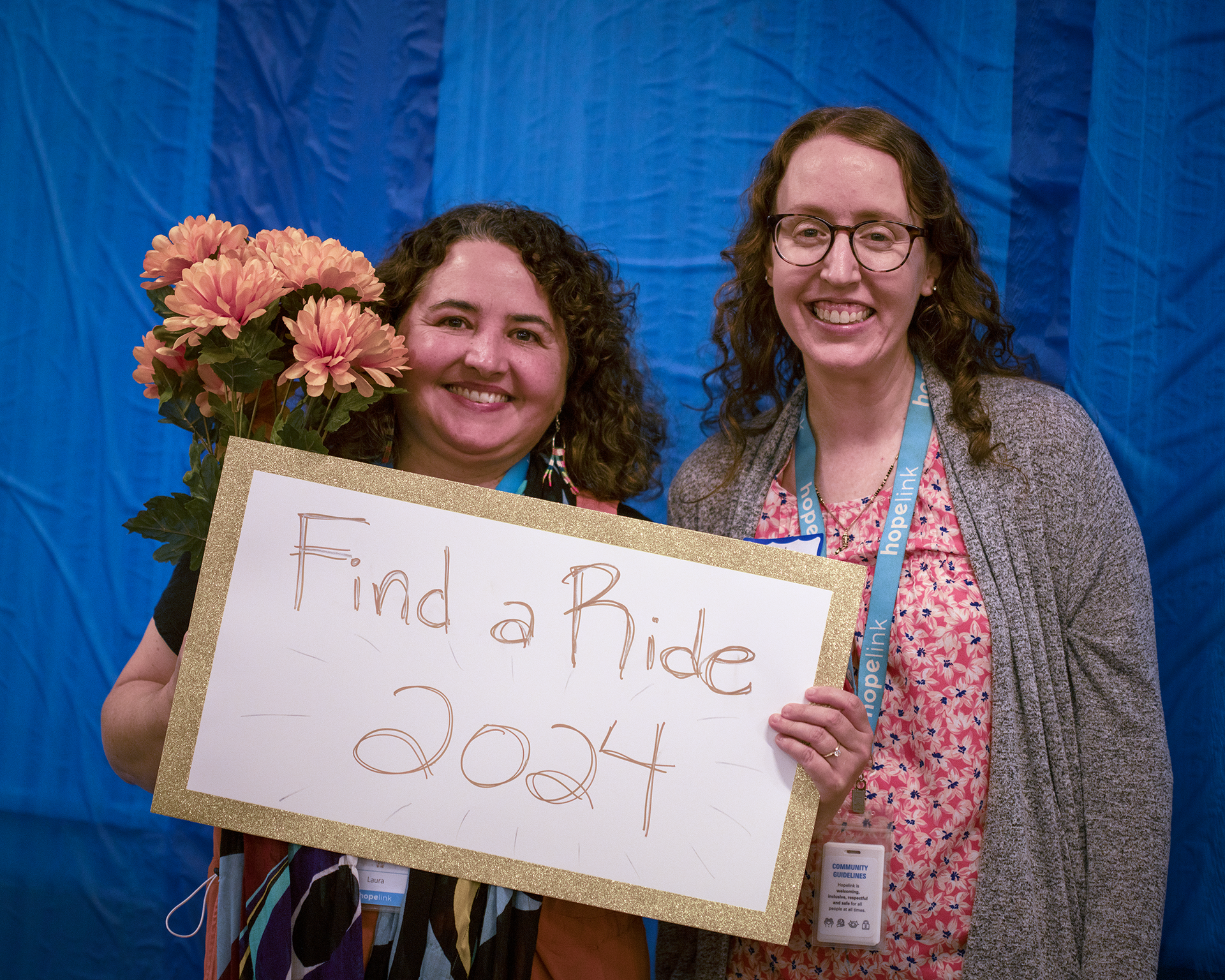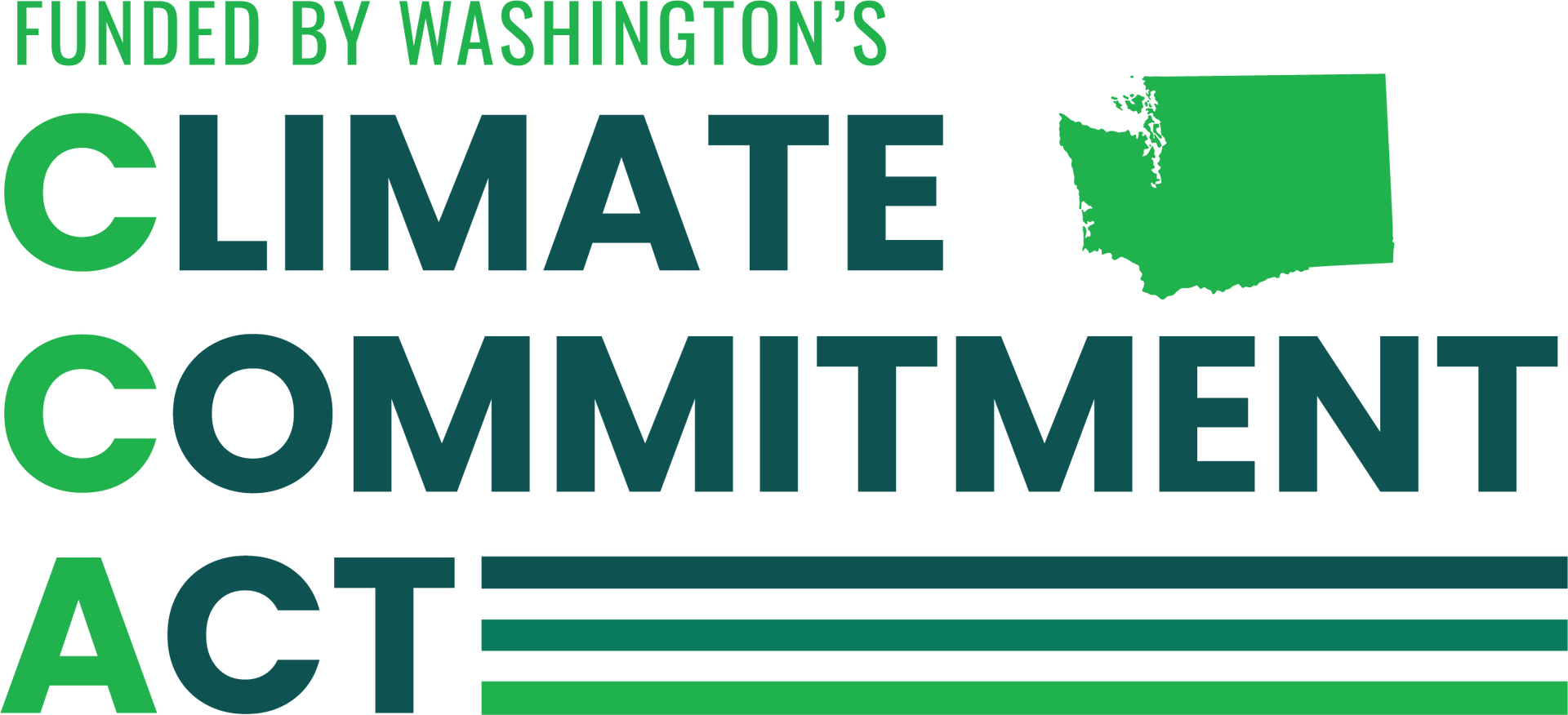Open the Paths 2023: An Open Data & Transportation Equity Conference
The Open the Paths 2023: An Open Data & Transportation Equity Conference brought together data professionals and academics with community members, transportation professionals, and organizations working to increase community mobility. There was a palatable and shared passion among every attendee and speaker around simplifying transportation in our communities. The technical focus on data specification standards was particularly relevant for a multi-year project Hopelink is working on, a One-Call/One-Click system, which will begin with the launch of a beta trip planner website in 2023.
The TDEI (transportation data equity initiative) is a project led by the Taskar Center for Accessible Technology and Washington State Transportation Center (TRAC), sponsored by the ITS4US Program, US Department of Transportation.
Led by Anat Caspi Ph D, the mini-conference had wide-ranging implications for mobility and accessibility in our communities. People with limited options make agonizing decisions for both necessary and joyful trips around their communities. The barriers for non-drivers include geographic, language, financial, cultural, time of day, lengthy planning ahead, and many other factors.
Open the Paths 2023, located at the Paul G. Allen School of Computer Science building, focused on refining relevant data standards to
improve mobility for people with disabilities and an analysis of other barriers to transit. Data quality and continuity ensures more comprehensive information in transit planning tools. Better data standards can help transit agencies and policymakers to identify and address gaps in our systems.
Keynote speaker, Karen Braitmayer, FAIA, architect, and wheelchair user, emphasized that working towards better data standards is both “an art and a science.” The conference also made connections to community mental health. Braitmayer explained how barriers like tree routes, steep hills, and bumps on sidewalks may make people afraid to leave their homes. Crafting data standards which help tell the story of our built environments is an urgent problem to address.
During Day 2, the conference focused on evaluation criteria for equity and access. Anat Caspi Ph D emphasized a need for less “squishy” criteria so transportation data can accurately reflect the experiences of multiply marginalized community members. The day ended with a synergetic community visioning conversation towards best practices in tagging community collected sidewalk data.
Over the two days, April 21 and 22, attendees pondered thorny questions like:
- Are wheelchair users pedestrians?
- What is meant by ‘good’ and ‘bad’ data?
- How might researchers assess when community members feel left out due to a lack of abundant transit options?
- How reliable are crowd-sourced data?
- How might lack of maintenance of existing data sources undermine the data integrity of existing data sets?
- What are collectible data?
Neuropsychologist Taylor Kuhn, Ph.D., presented on the Human Connectome Project and their work at the Institute for Transportation and Development Policy. This project “aims to provide an unparalleled compilation of neural data, an interface to graphically navigate this data, and the opportunity to achieve never before realized conclusions about the living human brain.” Learn more. Kuhn’s presentation demonstrated how Connectome modeling may predict future mode shift from single occupancy car travel due to congestion pricing.
Community volunteers are often co-creators in the data for sidewalks. This creates unique challenges for creating data standards. For example, Braitmayer described significant challenges translating concepts like “sidewalk bumps” into a data description standard. Several attendees mentioned how disruptive it can be when a paratransit trip that is supposed to be door-to-door takes extra time due to inefficiencies. The conference highlighted projects in Minnesota, Chicago, and Seattle tackling mobility options that currently are not included in Google or Apple Maps.
The collaboration fostered in the mini-conference ensures a more coordinated approach at the federal, state, and local levels. It reinforces the need for organizations rooted in the local community, like Hopelink, to be engaged in data creation and long-term continuous maintenance. At Hopelink, in connection with our partners in Pierce, King and Snohomish, we are helping set best practices for mobility management data projects in the Puget Sound Region that prioritize the needs of older adults and people with disabilities. Hopelink’s One-Call/One-Click system, Find a Ride, will begin a multi-year roadmap with the launch of a trip planner website in 2023. This work arose from an inclusive planning process with King County Mobility Coalition and other partners.
Hopelink’s guiding principles for Find a Ride include eventual integration with Access Map sidewalk data which focuses on understanding and improving the pedestrian experience through better data collection. At first, Find a Ride will be trip planner with “call ahead” and “right now” service. Longer-term plans include integration with mobility options like taxi services, micro-mobility, and more. As of April 2023, there are twenty-six services complete and twenty-six services in progress in Find a Ride. We appreciate the thoughtful data feed creation with our partners at WSDOT. Our project is shaping an emerging data standard for specialized transportation providers.
Find a Ride Program Manager, Laura Loe, reflected on the event:
“Open the Paths 2023 demonstrated the need for lived experts to be involved from the beginning, and at every aspect of mobility management, something Hopelink has ensured with support from our Advisory Committee. Hopelink’s engagement and outreach, new community navigator program, and transportation resources phone line are all rooted in listening to non-drivers and connecting them to choices to increase their independence and community connection.”
At Hopelink, our mobility programs benefit from robust community connections. Find a Ride’s trip planner will lead to gap assessments, a theme woven throughout Open the Paths 2023. Our project will help the Puget Sound Region right away while also leading to long-term improvements for those who have been left stranded by current systems. Analogous to the work on sidewalk data, it will take on-the-ground feedback to increase accuracy and meaning to our One-Call/ One-Click program.
Hopelink’s Director of Mobility Management and the Program Manager for Find a Ride were in attendance. Members of the Find a Ride project team from the King County Mobility Coalition, Cambridge Systematics, Arcadis IBI, SDOT, PSRC, WSDOT were also in attendance.
A special thank you to Dr. Anat Caspi for hosting this fantastic event.
Anat Caspi, PhD, is Principal Scientist at the Paul G. Allen School of Computer Science & Engineering. She is Director of the Taskar Center for Accessible Technology, whose mission is to develop, translate and deploy open source universally accessible technologies, with a focus on benefiting individuals with motor limitations or speech impairment. Dr. Caspi is a technical advisor for Hopelink’s Find a Ride, One-Call/One-Click program.
Mobility News
